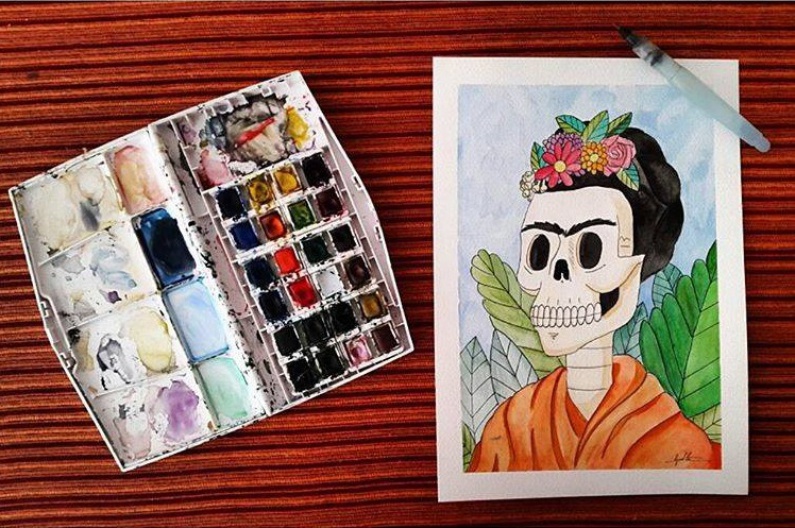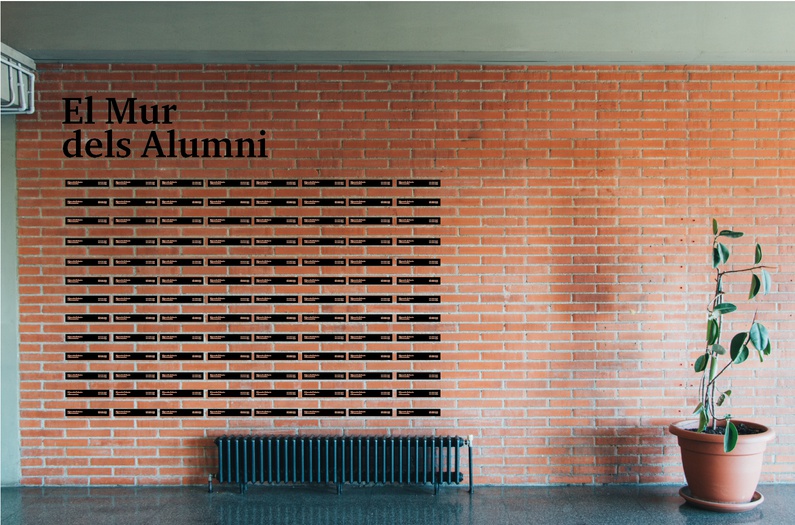
Crowdfunding: The Collaborative Economy Makes Its Way into Universities
Published on
Translation by:
Benjamin BartzA few universities foot the bill for four years of strong cuts in education in which hundreds of students are left without a grant. The economic crisis has caused crowdfunding to install itself in universities as a way to gain the financing that no longer arrives from public funds.
Waves of citizens of all colors crossed major streets in Spain defending the public for three years. Within the variety of colors that ran the streets protesting the cuts, one also found green: They marched for a quality public education. The green tide crossed Spanish cities to protest the increase in tuition costs, the cut in the portion destined to grants and the LOMCE, or the Constitutional Law for the Betterment of the Quality of Education, the seventh law to change the education system in less than forty years of democracy.
Today the situation has not changed; the public cost dedicated to education continues to fall to levels from before the crisis, that is to say, that the investment in this area is less than that of 10 years ago. The direct results of these cuts are a smaller investment in grants for students and researchers, an increase in academic costs, a decrease in the number of students enrolled in degree programs and fewer professors in the classroom.
This need reduces talent and, simultaneously, is synonymous with innovation. The lack of financing in the public university system has been another consequence of the numerous adjustments and cuts that have taken place since the onset of the economic crisis. At the same time, the collective cooperation by means of crowdfunding campaigns has in the last few years become a way for young entrepreneurs faced with the challenge of collecting funds to start projects, but it seems that the collaborative economy has also made its way to universities, and it's there to stay.
Cynthia: Drawings and Pictures to Pay Tuition
One of the many students to whom the cuts in education have left outside the new system of grants was Cynthia Uceda, a student of fine arts at The University of Seville. It occurred to her to charge a type of fee for her drawings using Twitter and Facebook in order to pay tuition. The idea came upon her at her own university, where a professor encouraged her classmates and her to mount their own crowdfunding campaigns in order to finance their artistic projects.
"When I saw that I couldn't pay for the second year of the degree because they would deny me the grant, and because it had happened to me since high school, I decided to launch the campaign through social networks after requesting my professor's opinion and that of my inner-circle of friends".
 The answer was greater than this Sevillian student had first hoped: "Altogether I received 250 orders, each with their corresponding illustrations. In hardly 24 hours, it had reached 13,000 retweets on Twitter and my ad would be shared 6,000 times on Facebook". The campaign had reached a magnitude that Cynthia didn't imagine when she sent the message, nor had she thought about all the people that she would reach.
The answer was greater than this Sevillian student had first hoped: "Altogether I received 250 orders, each with their corresponding illustrations. In hardly 24 hours, it had reached 13,000 retweets on Twitter and my ad would be shared 6,000 times on Facebook". The campaign had reached a magnitude that Cynthia didn't imagine when she sent the message, nor had she thought about all the people that she would reach.
"It took me a few days to organize all the orders and I still had drawings to finish". Responses of empathy as well as annoyance and anger were what this Sevillian found in the messages that she received. Those who responded to Cynthia were aware of what she assumed exposing herself to public opinion and having to "arrive at that point because the government doesn't work with students".
In regards to enrolling in the next course, she thinks that the grant system will continue excluding her. The problem is not only paying the fees; many Spanish students must move out of their parent's house in order to go to college and the part of the grant anticipated to cover this situation is 1,500 euros. "Considering rent and expenses, it's possible that I'll have to create myself another campaign in the future. In fact, I continue accepting new orders to continue paying for my apartment and materials for my craft, which are nothing cheap".
Nana: Without Financing to Two Years to Finish Her Doctoral Thesis
Athina Raftopoulou (Nana) studied economics in Patras, her native city in Greece, where she also earned a master's in applied economics and data analysis. Studying at The University of Barcelona was a string of coincidences of which coincided with the European Water Polo Championship of 2011, in which Nana participated representing her country. Now, she only has two more years to go to finish her doctorate- an investigation on social inequalities and obesity- and isn't able to continue financing it.
Faced with the lack of public financing, "El Mur dels Alumni", or "The Wall of Alumni", has launched a campaign on Verkami (a crowdfunding platform) to help finance her research.
 The campaign, "El Mur dels Alumni", was created at The University of Barcelona and is based on cooperative financing models from universities like Harvard in which "an initiative is opened-up that looks to unite old students with new ones". The way to do it is through financing research in which students carry out a doctorate without a grant, as is the case of Nana, or projects that are forged in the hearts of the students of this university. "It's a response to the cuts that have been carried out: Financing of research in Catalonia has dropped 36%".
The campaign, "El Mur dels Alumni", was created at The University of Barcelona and is based on cooperative financing models from universities like Harvard in which "an initiative is opened-up that looks to unite old students with new ones". The way to do it is through financing research in which students carry out a doctorate without a grant, as is the case of Nana, or projects that are forged in the hearts of the students of this university. "It's a response to the cuts that have been carried out: Financing of research in Catalonia has dropped 36%".
Nana says that the intent of this financing campaign is not to replace public funding, but, "because the number of students with full-time grants is very low, it is necessary to find other financing options". In fact, at the university of Barcelona, the number of doctoral students with some type of public grant does not reach 15%. "I believe that research is fundamental. In the end, what they translate into cuts in education is a loss for society in the future".
With respect to the education system in Greece, Nana says that it's free and "tended to be of high quality". High unemployment has also caused more people to continue their studies when faced with the impossibility of finding a job. "Universities are saturated and professors don't have any incentives (lowered wages, little financing of their projects, etc...), nevertheless the level of education is high". Nana says that the majority of people involved in higher education leave the country to look for a better profesional situation. The situation in the Hellenic country strongly recalls that of Spain: "They're letting their future slip from their hands".
Translated from 'Crowdfunding': La economía colaborativa se cuela en la universidad



